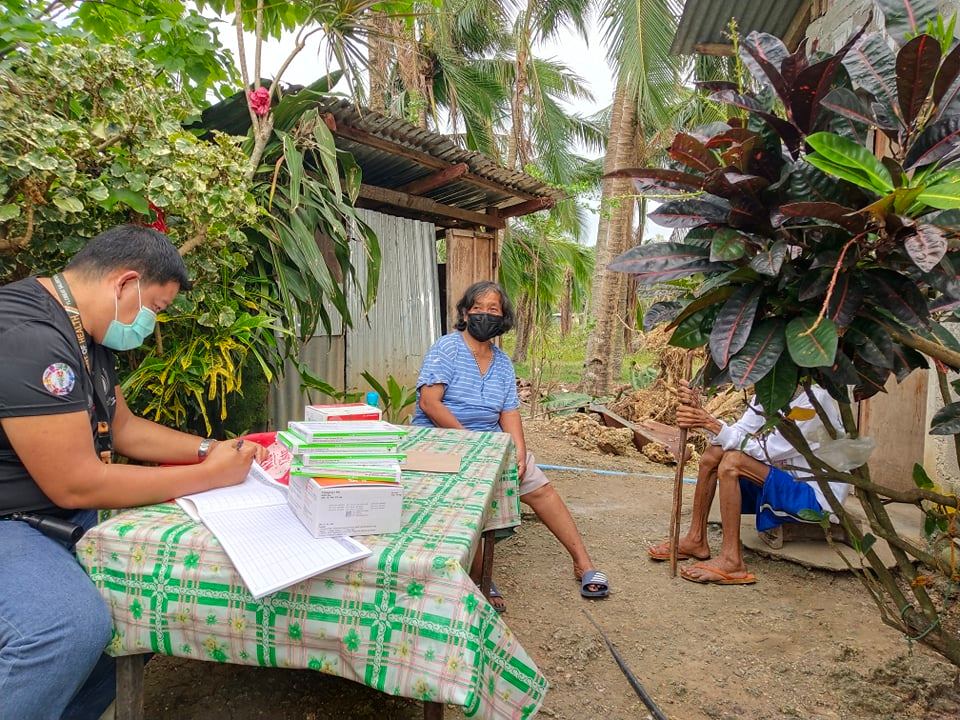When the COVID-19 pandemic forced people to stay home and significantly affected critical health services, Joverson Bejic worried about the completion of treatment of people with tuberculosis (TB). As the head nurse at the Pinamungahan TB-DOTS clinic, Bejic saw the sudden drop in the number of persons being treated for TB.
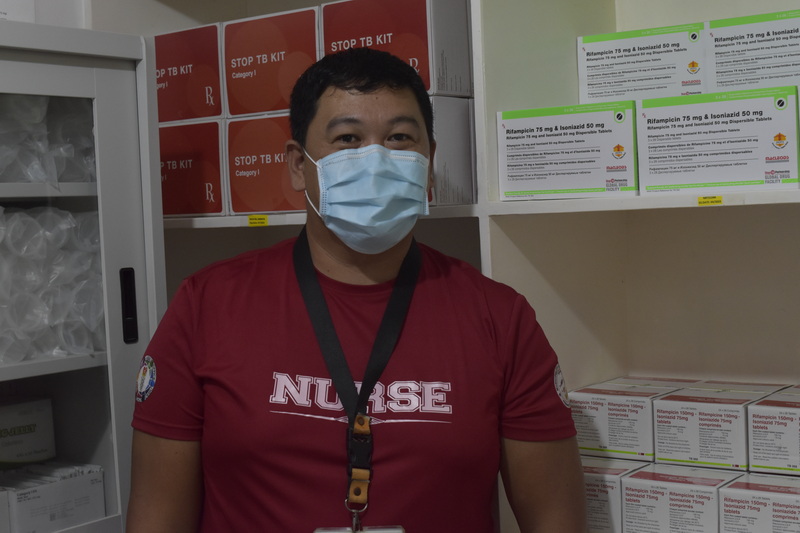
“Sobrang kumonti talaga (The drop was very drastic),” said Bejic. In 2019, there were 140 cases enrolled for treatment at the clinic. By the end of 2021, there were only 89 new cases that were found and started treatment. A reduction in treatment coverage also means a reduction in the number of loved ones and contacts who are tested and treated for TB infection.
Pinamungahan is a second-class municipality in the Province of Cebu. This town had been strengthening its efforts to find more TB cases in support of the National TB Control Program before the COVID-19 pandemic lockdowns.
In November 2021, when quarantine restrictions were finally relaxed, Bejic and the rest of the primary care providers at the Pinamungahan TB-DOTS clinic renewed efforts to screen and treat TB cases. Even during the Christmas holiday season, Bejic found himself monitoring people with TB and doing home visits to offer TB Preventive Treatment (TPT) to their loved ones. Administering the early and effective TPT regimen among contacts is a key strategy to stop the spread of active TB disease.
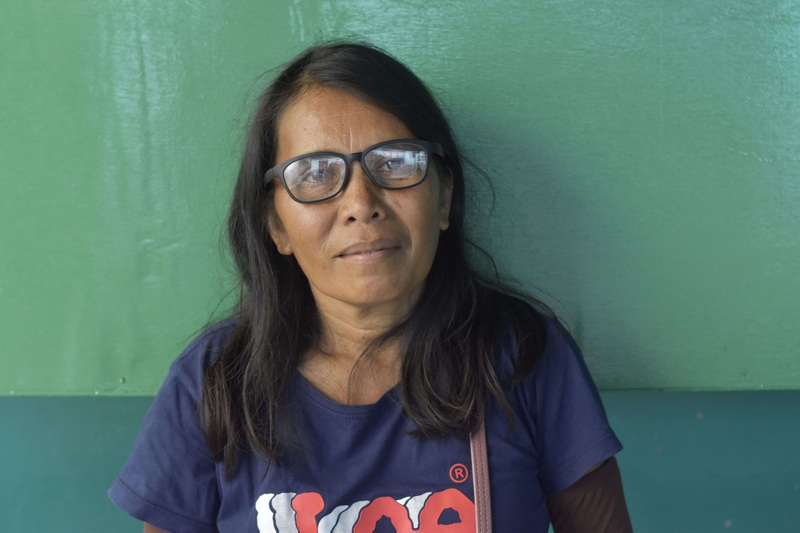
Felipa Lepitaje, 52, and Elgen Tanghan, 41, are now among the 11 household contacts who are currently on TPT after being exposed to a loved one with TB at home. Felipa’s husband was diagnosed with TB in December 2021. After a contact investigation visit by Nurse Bejic, Felipa and her 19-year old son were screened for TB infection and agreed to take the TPT.
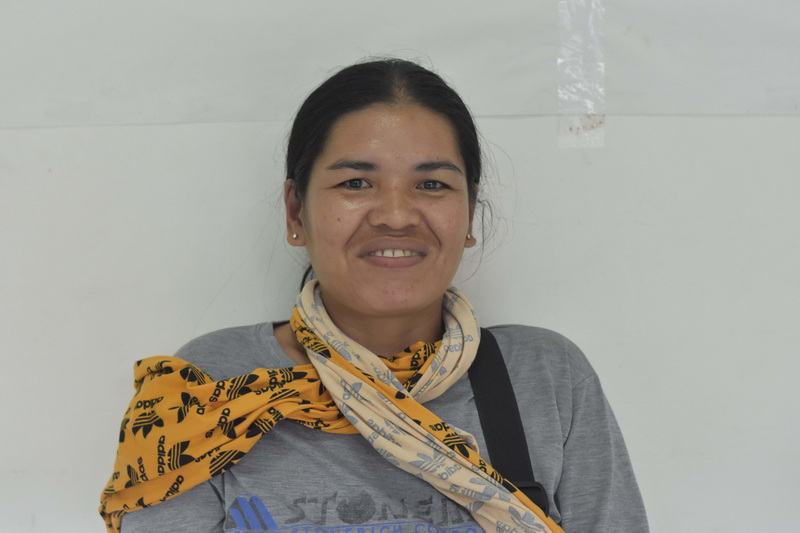
Elgen and her 14-year old daughter live with her sister and her family. In December 2021, her father-in-law had been coughing for more than two weeks already. When he was finally able to visit the health center for a check-up, he tested positive for pulmonary TB. Bejic inquired about the patient’s household contacts and managed to convince them to undergo screening for TB infection. When Elgen learned that she and her daughter had TB infection, she immediately agreed to take the three-month TPT regimen.
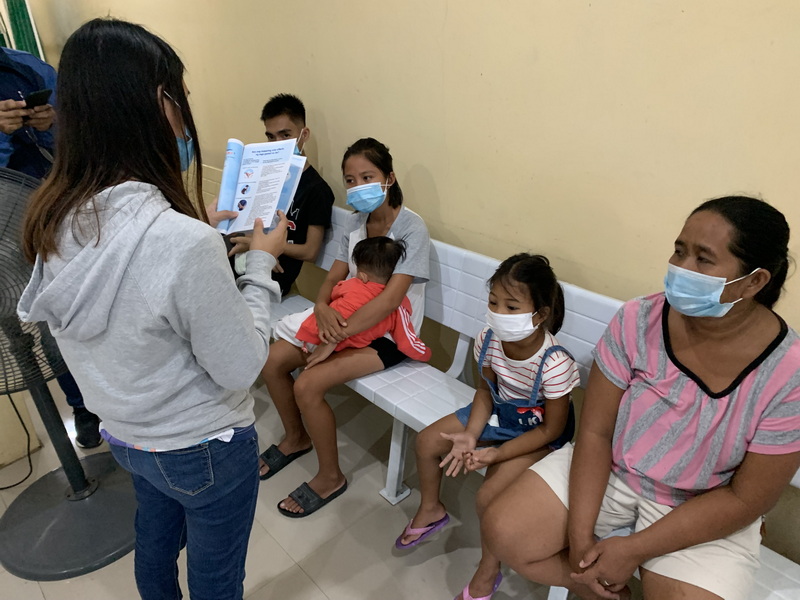
Bejic admitted that offering TPT to people who are not sick of TB used to be a difficult task. But after attending a series of online training sessions on TPT provided by the DOH and the TB Innovations and Health Systems Strengthening Project of the United Agency for International Development (USAID), he picked up a few tips to convince household contacts to get treated for TB infection.
Bejic shared how he portrayed the TB bacteria as villainous creatures who would stealthily wait until a person’s immune system weakens before striking hard. The TPT drugs then are presented as superheroes who eliminate the TB bacteria from the body. “Superhero na may Tanggal Bacteria Power (A superhero with the power to remove TB bacteria),” said Bejic.
Elgen appreciated how Nurse Bejic educated her about TB and TPT. “Salamat talaga kay Sir Jover sa pagturo niya sa amin tungkol sa TB Preventive Treatment. Dahil dito at kahit mahirap lang kami, nakuha namin yung mga gamot na libre. Kampante kami na di kami magkakaroon agad-agad ng TB. (I am very thankful to Sir Jover for teaching us what TB Preventive Treatment is. Because of this and despite being poor, my family can take the medicines for free. We are at ease that we will not get TB anytime soon),” Elgen said, noting that she and her son have already completed their TPT in April 2022.
Felipa, meanwhile, has become a TB advocate in her own little way. After she and her son completed their TPT in March 2022, she has gone out of her way to share her treatment journey with her neighbors. “Mag-istorya ako sa kanila na magpa-check up agad lalo na kung may ubo. Libre naman ang mga serbisyong ito. (I encourage my neighbors to seek immediate care at the health center at the onset of symptoms like coughing. I tell them that the services are free),” said Felipa. Her husband, meanwhile, is still in the middle of his treatment regimen but Felipa believes in his complete recovery.
“Para healthy ang lungs, dapat talaga magtiwala at magkonsulta sa health workers tulad ni Nurse Jover Bejic (For healthy lungs, we should trust and consult our health workers like Nurse Jover Bejic),” stressed Felipa.

